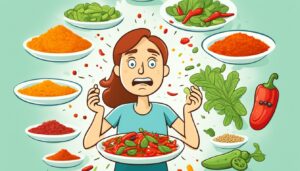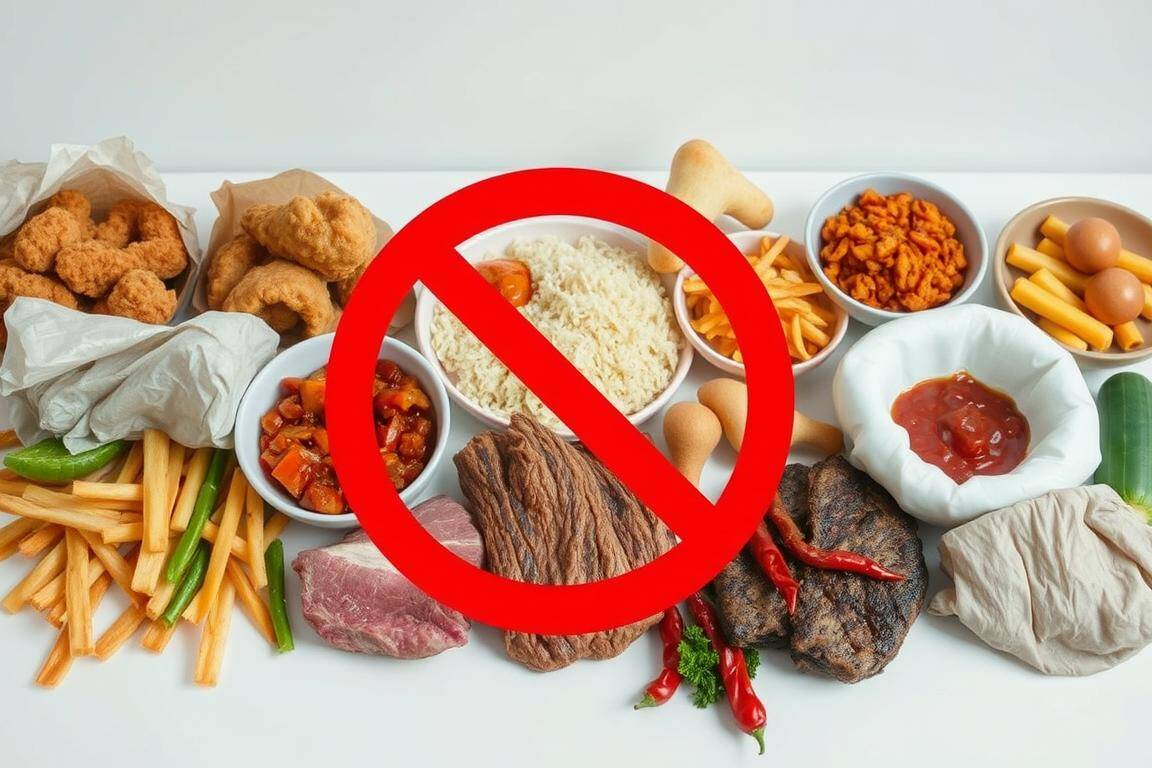Do you find yourself constantly battling bloating, cramping, and unpredictable bathroom trips? If so, you’re not alone. Irritable Bowel Syndrome (IBS) affects millions of people worldwide, turning everyday activities into a struggle. Whether it’s feeling uncomfortable after meals, worrying about finding a restroom, or dealing with persistent stomach pain, IBS can be frustrating and exhausting.
Table of Contents
ToggleThe good news? IBS is manageable. While there’s no cure, the right diet, lifestyle changes, and stress management techniques can significantly reduce symptoms and help you regain control of your digestive health. Instead of feeling trapped by your gut issues, you can start making changes that put you back in charge.
This guide will walk you through everything you need to know about IBS—what it is, what causes it, and most importantly, how you can manage it effectively.
Understanding IBS and Its Symptoms

IBS is a chronic digestive disorder that affects the large intestine. Unlike conditions such as Crohn’s disease or ulcerative colitis, IBS doesn’t cause permanent damage to the intestines. However, it can be incredibly uncomfortable and significantly impact daily life.
People with IBS often experience a variety of symptoms, and no two cases are exactly alike. Some struggle primarily with bloating and gas, while others deal with frequent diarrhea, constipation, or both. Abdominal pain, cramping, and sudden urges to use the restroom are also common. Many people notice that symptoms worsen after certain meals, during stressful situations, or at random times, making IBS unpredictable and difficult to manage.
One of the most frustrating things about IBS is that it’s different for everyone. While some people might be triggered by dairy, others can eat cheese without a problem. This is why understanding your personal triggers is one of the most important steps toward relief.
What Causes IBS?

Doctors and researchers still don’t fully understand what causes IBS, but they believe it’s linked to several factors. One of the biggest contributors is the gut-brain connection. Your gut and brain are constantly communicating, which means stress, anxiety, and emotional distress can directly impact digestion. This explains why IBS symptoms often worsen during periods of high stress.
Food sensitivities also play a role. Certain foods—such as dairy, gluten, and high-FODMAP foods—can be harder to digest, leading to bloating, cramps, and irregular bowel movements. An imbalance of gut bacteria, a condition known as dysbiosis, can also contribute to symptoms. When the balance of good and bad bacteria in your gut is off, your digestion may become unpredictable.
Some people with IBS also have mild inflammation in their intestines, which can make their digestive system more sensitive. Additionally, hormonal fluctuations, especially in women, can trigger IBS flare-ups, which is why many women notice worsening symptoms around their menstrual cycle.
Since IBS doesn’t have a single cause, there’s no one-size-fits-all treatment. However, by identifying your personal triggers, you can create a plan that helps minimize symptoms and restore balance to your gut.
How to Manage IBS and Improve Digestive Health
While there’s no cure for IBS, small but consistent changes in your diet, stress levels, and daily habits can drastically improve symptoms and make life more manageable.
One of the most effective ways to control IBS is through dietary adjustments. Certain foods soothe digestion, while others trigger discomfort. Many people with IBS benefit from following the Low-FODMAP diet, which helps eliminate foods that cause bloating and irritation. High-FODMAP foods—such as onions, garlic, beans, and some dairy products—are often difficult to digest and can lead to flare-ups. Keeping a food journal and tracking symptoms can be incredibly helpful in figuring out which foods are safe and which ones to avoid.
Stress management is another essential part of IBS relief. Since the gut and brain are so closely connected, stress can make symptoms worse. Incorporating relaxation techniques into your daily routine—such as meditation, deep breathing, or even short walks—can help regulate digestion and prevent flare-ups. Getting enough sleep is also key, as poor sleep can lead to increased gut sensitivity.
Staying hydrated is just as important as making dietary changes. Drinking plenty of water can help prevent constipation and keep your digestion running smoothly. Herbal teas, especially peppermint and ginger tea, can be soothing and reduce bloating. On the other hand, carbonated drinks and excessive caffeine can make symptoms worse, so limiting these can be beneficial.
Exercise can also make a huge difference in IBS symptoms. While high-intensity workouts can sometimes trigger cramps, gentle activities like walking, yoga, or stretching can help regulate digestion and relieve bloating. Even a 20-minute walk after meals can stimulate digestion and prevent discomfort.
Many people with IBS find relief through probiotics and digestive supplements. Probiotics can help balance gut bacteria, easing digestion and reducing bloating. Supplements like peppermint oil capsules may soothe stomach cramps, while digestive enzymes support more efficient food breakdown. Still, it’s important to consult a doctor before starting any new supplement. For personalized recommendations, explore trusted IBS treatment.
Final Thoughts: Take Control of Your Digestive Health
IBS can feel overwhelming, but you don’t have to suffer in silence. By making small, consistent changes—adjusting your diet, managing stress, staying hydrated, and incorporating gentle movement into your routine—you can significantly reduce symptoms and regain control of your life.
If you’ve been struggling with bloating, cramping, or unpredictable digestion, now is the time to start making small changes. It might take some trial and error to find what works best for your body, but with patience and persistence, you’ll discover ways to feel more comfortable and confident in your daily life.
Your gut health is in your hands, and with the right approach, you can start feeling better every day.
About The Author

Medically reviewed by Dr. Nivedita Pandey, MD, DM (Gastroenterology)
Dr. Nivedita Pandey is a U.S.-trained gastroenterologist and hepatologist with extensive experience in diagnosing and treating liver diseases and gastrointestinal disorders. She specializes in liver enzyme abnormalities, fatty liver disease, hepatitis, cirrhosis, and digestive health.
All content is reviewed for medical accuracy and aligned with current clinical guidelines.





